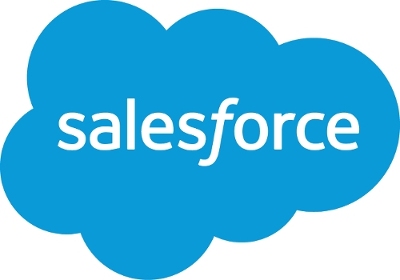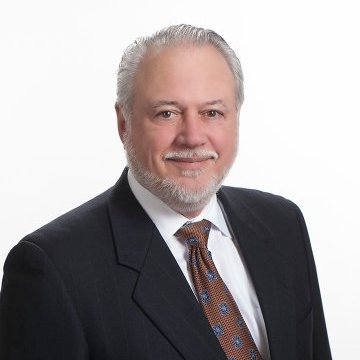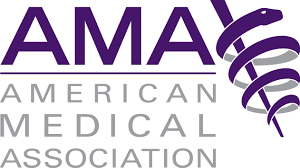care coordination
See the following -
Patient Record Sharing Increases Using Carequality Interoperability Framework
 Nationwide health data sharing takes another leap forward as the early adopters of Carequality announced they’ve made it easier to exchange data between different electronic health record systems (EHRs), record locator services (RLS), and health information exchanges (HIEs), leveraging a central provider directory and common set of rules. At select sites, providers using athenahealth®, eClinicalWorks, Epic, HIETexas, NextGen and Surescripts are now sharing health information with other providers using the Carequality Interoperability Framework...
Nationwide health data sharing takes another leap forward as the early adopters of Carequality announced they’ve made it easier to exchange data between different electronic health record systems (EHRs), record locator services (RLS), and health information exchanges (HIEs), leveraging a central provider directory and common set of rules. At select sites, providers using athenahealth®, eClinicalWorks, Epic, HIETexas, NextGen and Surescripts are now sharing health information with other providers using the Carequality Interoperability Framework...
- Login to post comments
PatientPing Raises $31.6 Million From Andreessen Horowitz and Leerink Transformation Partners to Accelerate Growth of its National Care Coordination Network
 PatientPing, a health technology company that connects providers to seamlessly coordinate patient care, announced today that it has received $31.6 million in Series B funding led by Silicon Valley firm Andreessen Horowitz and Boston-based Leerink Transformation Partners (LTP). The funding will help fuel the company's rapid expansion into new geographies and accelerate the development of product enhancements. PatientPing also plans to at least double the size of its team by actively hiring inspired change-makers for its growth, operations, engineering, and product development teams...
PatientPing, a health technology company that connects providers to seamlessly coordinate patient care, announced today that it has received $31.6 million in Series B funding led by Silicon Valley firm Andreessen Horowitz and Boston-based Leerink Transformation Partners (LTP). The funding will help fuel the company's rapid expansion into new geographies and accelerate the development of product enhancements. PatientPing also plans to at least double the size of its team by actively hiring inspired change-makers for its growth, operations, engineering, and product development teams...
- Login to post comments
Physician Burnout Is A Public Health Crisis: A Message To Our Fellow Health Care CEOs
 The Quadruple Aim recognizes that a healthy, energized, engaged, and resilient physician workforce is essential to achieving national health goals of higher quality, more affordable care and better health for the populations we serve. Yet in a recent study of U.S. physicians, more than half reported experiencing at least one symptom of burnout—a substantial increase over previous years—indicating that burnout among physicians is becoming a national health crisis. Leadership is needed to address the root causes of this problem and reposition the health care workforce for the future. The authors of this paper—the CEOs of our respective institutions—are committing to do just that...
The Quadruple Aim recognizes that a healthy, energized, engaged, and resilient physician workforce is essential to achieving national health goals of higher quality, more affordable care and better health for the populations we serve. Yet in a recent study of U.S. physicians, more than half reported experiencing at least one symptom of burnout—a substantial increase over previous years—indicating that burnout among physicians is becoming a national health crisis. Leadership is needed to address the root causes of this problem and reposition the health care workforce for the future. The authors of this paper—the CEOs of our respective institutions—are committing to do just that...
- Login to post comments
Physician EHR Use, Workload Trumping Face Time with Patients
For every hour physicians spend with patients, they spend another two hours on physician EHR use and deskwork, according to a recent study from the American Medical Association. The AMA study highlights what many consider the primary issue with the increasing prevalence of physician EHR use: the significant workload the technology adds for providers...
- Login to post comments
Physicians Prefer VistA-So Should Decision Makers
In their 2014 EHR Report—a survey of 18,575 physicians on their EHR preferences—Medscape concludes that doctors like using the VA’s Computerized Provider Record System (CPRS), the core electronic record in the broader VistA platform, more than any other solution. Here’s what they said, "The highest-rated EHR, with a score of 3.9, is the Veterans Administration EHR: VA-CPRS. It’s regarded as one of the best overall by our physician respondents"
- Login to post comments
Regarding Open Source, Security, and Cloud Migration, Old Prejudices Die Hard in Health Care
 Although the health care industry has made great strides in health IT, large numbers of providers remain slow to reap the benefits of a “digital transformation”. Health care organizations focus on what they get paid for and neglect other practices that would improve care and security. At conferences and meetings year and after year, I have to listen to health care leaders tediously explode the same myths and explain the same principles over and over. In this article I'll concentrate on the recent EXPO.health conference, put on in Boston by John Lynn's Healthcare Scene, where the topics of free and open source EHRs, security, and cloud migration got mired down in rather elementary discussions.
Although the health care industry has made great strides in health IT, large numbers of providers remain slow to reap the benefits of a “digital transformation”. Health care organizations focus on what they get paid for and neglect other practices that would improve care and security. At conferences and meetings year and after year, I have to listen to health care leaders tediously explode the same myths and explain the same principles over and over. In this article I'll concentrate on the recent EXPO.health conference, put on in Boston by John Lynn's Healthcare Scene, where the topics of free and open source EHRs, security, and cloud migration got mired down in rather elementary discussions.
- Login to post comments
Salesforce Introduces Salesforce Health Cloud -- Building Patient Relationships, Not Records
 Salesforce...today introduced Salesforce Health Cloud, empowering healthcare providers to go beyond health records and build stronger relationships with patients. Salesforce Health Cloud is a cloud-based patient relationship management solution that enables providers to gain a complete view of the patient with integrated data from electronic medical records (EMRs), wearables and more; make smarter care decisions; engage with patients across their caregiver networks; and manage patient data.
Salesforce...today introduced Salesforce Health Cloud, empowering healthcare providers to go beyond health records and build stronger relationships with patients. Salesforce Health Cloud is a cloud-based patient relationship management solution that enables providers to gain a complete view of the patient with integrated data from electronic medical records (EMRs), wearables and more; make smarter care decisions; engage with patients across their caregiver networks; and manage patient data.
- Login to post comments
Serial Entrepreneur Peter Tippett Hopes To Improve America's Health Care System
 These days, the energetic and innovative Tippett is tackling perhaps his biggest challenge yet: turning the bloated, costly and cumbersome world of electronic medical records on its head. Instead of relying on institution-controlled health information exchanges to share records, Tippett wants to empower doctors and patients. The name of his company— HealthCelerate—hints at the urgency with which he wants to transform the system, and a lifetime of cutting-edge achievement suggests he may be just the guy for the challenge.
These days, the energetic and innovative Tippett is tackling perhaps his biggest challenge yet: turning the bloated, costly and cumbersome world of electronic medical records on its head. Instead of relying on institution-controlled health information exchanges to share records, Tippett wants to empower doctors and patients. The name of his company— HealthCelerate—hints at the urgency with which he wants to transform the system, and a lifetime of cutting-edge achievement suggests he may be just the guy for the challenge.
- Login to post comments
SimplyVital Health Partners With Toro Risk Consulting Group On Transformational Blockchain Healthcare Technology
 SimplyVital Health (SVH) and Toro Risk Consulting Group, LLC (Toro) have announced an affiliation that brings the transformational healthcare technology of SVH together with the marketing, legal, and risk expertise of Toro. Toro recognized early on the potential that SVH's pioneering platform has to help providers transition from fee-for-service to value-based healthcare. New value-based payment models, such as bundled payments, allow providers to realize savings if they can decrease the average cost of patient care...
SimplyVital Health (SVH) and Toro Risk Consulting Group, LLC (Toro) have announced an affiliation that brings the transformational healthcare technology of SVH together with the marketing, legal, and risk expertise of Toro. Toro recognized early on the potential that SVH's pioneering platform has to help providers transition from fee-for-service to value-based healthcare. New value-based payment models, such as bundled payments, allow providers to realize savings if they can decrease the average cost of patient care...
- Login to post comments
Tampa General Hospital and USF Health Implement careMESH to Advance Care Team Collaboration with Community Providers
 careMESH today announced that it has launched its services with both Tampa General Hospital (TGH) and USF Health (USF). Integrated with TGH's Epic Electronic Medical Record (EMR), patient admission and discharge notifications are automatically and digitally sent to the patient's primary care physician, and clinical staff are able to send referrals and transitions of care to any provider in the country. "We have long sought new ways to engage with the community and better communicate and collaborate with partner physicians and practices while ensuring operational efficiency and patient privacy. We were drawn to careMESH because they solve a key challenge: how to move all communications with external clinicians to digital communications," said Scott Arnold, Executive VP & Chief Information Officer for Tampa General Hospital.
careMESH today announced that it has launched its services with both Tampa General Hospital (TGH) and USF Health (USF). Integrated with TGH's Epic Electronic Medical Record (EMR), patient admission and discharge notifications are automatically and digitally sent to the patient's primary care physician, and clinical staff are able to send referrals and transitions of care to any provider in the country. "We have long sought new ways to engage with the community and better communicate and collaborate with partner physicians and practices while ensuring operational efficiency and patient privacy. We were drawn to careMESH because they solve a key challenge: how to move all communications with external clinicians to digital communications," said Scott Arnold, Executive VP & Chief Information Officer for Tampa General Hospital.
- Login to post comments
The Data You've Been Missing — Provided by Patients
Ask orthopedic surgeon Andrew Jawa, M.D., when his total shoulder replacement patients can expect to put on a jacket without help. His answer is likely to include the exact postoperative week — with evidence-based variations due to each patient's age and condition. Jawa performs more than 220 total shoulder replacements each year at the Boston Sports and Shoulder Center. And his success relies in part on self-reported data provided by his patients at every visit, from the first preoperative appointment through every follow-up visit for the next five years...
- Login to post comments
The Experience of Interoperability Thus Far
 As I travel across the country and listen to CIOs struggling with mandates from Meaningful Use to ICD-10 to the HIPAA Omnibus rule to the Affordable Care Act, I'm always looking for ways to reduce the burden on IT leaders. All have expressed frustration with the health information exchange (HIE) policies and technologies for care coordination. quality measurement, and patient engagement. As a country, what can we do to reduce this anxiety? Read More »
As I travel across the country and listen to CIOs struggling with mandates from Meaningful Use to ICD-10 to the HIPAA Omnibus rule to the Affordable Care Act, I'm always looking for ways to reduce the burden on IT leaders. All have expressed frustration with the health information exchange (HIE) policies and technologies for care coordination. quality measurement, and patient engagement. As a country, what can we do to reduce this anxiety? Read More »
- Login to post comments
The HITECH Era in Retrospect
At a high level, the Health Information Technology for Economic and Clinical Health (HITECH) Act of 2009 accomplished something miraculous: the vast majority of U.S. hospitals and physicians are now active users of electronic health record (EHR) systems. No other sector of the U.S. economy of similar size (one sixth of the gross domestic product) and complexity (more than 5000 hospitals and more than 500,000 physicians) has undergone such rapid computerization...
- Login to post comments
The Sad State of Uncoordinated Care in the U.S.
 Care coordination deficiencies in the U.S. healthcare system can be so frustrating that they are (almost) comical. That is a message patient activist Jessica Jacobs aired as she advocated for healthcare operational efficiency improvements and care coordination. Until her death last month, Jacobs blogged and used social media to draw attention to America’s problems with disjointed healthcare. She did this by sharing stories of the numerous system failures she experienced firsthand as a patient with complex care needs...
Care coordination deficiencies in the U.S. healthcare system can be so frustrating that they are (almost) comical. That is a message patient activist Jessica Jacobs aired as she advocated for healthcare operational efficiency improvements and care coordination. Until her death last month, Jacobs blogged and used social media to draw attention to America’s problems with disjointed healthcare. She did this by sharing stories of the numerous system failures she experienced firsthand as a patient with complex care needs...
- Login to post comments
Type & Click Tasks Drain Half the Primary Care Workday
 Primary care physicians spend more than half of their workday at a computer screen performing data entry and other tasks with electronic medical records (EHRs), according to new research from experts at the University of Wisconsin and the American Medical Association (AMA). Based on data from EHR event logs and confirmed by direct observation data, researchers found that during a typical 11.4-hour workday, primary care physicians spent nearly six hours on data entry and other tasks with EHR systems during and after clinical hours. The study was published today in the Annals of Family Medicine...
Primary care physicians spend more than half of their workday at a computer screen performing data entry and other tasks with electronic medical records (EHRs), according to new research from experts at the University of Wisconsin and the American Medical Association (AMA). Based on data from EHR event logs and confirmed by direct observation data, researchers found that during a typical 11.4-hour workday, primary care physicians spent nearly six hours on data entry and other tasks with EHR systems during and after clinical hours. The study was published today in the Annals of Family Medicine...
- Login to post comments